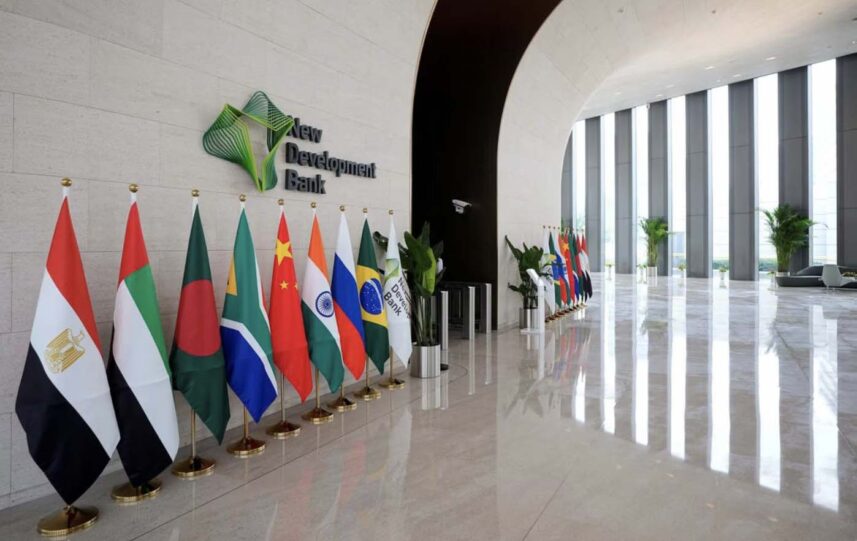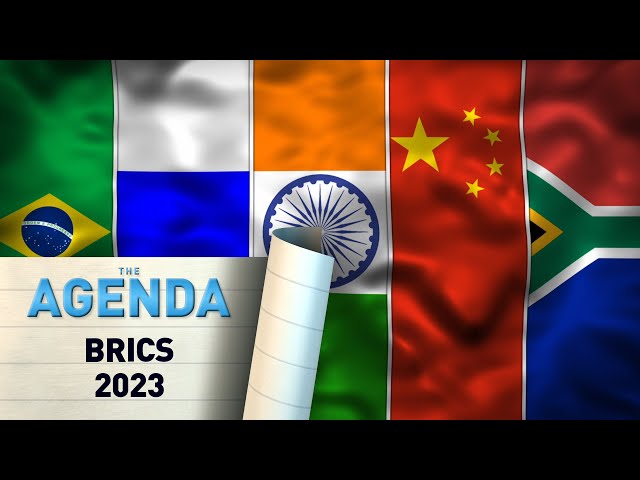The expansion of the BRICS bloc, under discussion at this week's summit in Johannesburg, has attracted a diverse group of potential candidates – from Iran to Argentina – intent on starting a new inclusive process to compete with the western block.
There are many issues that emerging countries complain about:
- Abusive business practices.
- Punitive sanctioning regimes.
- The perception of neglecting the development needs of the poorest nations.
- The domination of the rich West in international bodies, such as the United Nations, the International Monetary Fund and the World Bank.
More than 22 countries have expressed interest in joining the BRICS, according to officials in South Africa, which is set to host the summit Aug. 24-40. Of these, nearly two dozen have formally applied to be admitted.

"The objective need for a grouping like the BRICS has never been greater", he has declared Rob Davies, South Africa's former trade minister, who helped put his country into the economic bloc in 2010.
"Multilateral bodies are not places where we can go and get a fair and inclusive outcome".
According to observers, however, the underperforming results do not bode well for the BRICS' prospects of realizing the high hopes desired by potential members.
While home to around 40% of the world's population and a quarter of global GDP, the bloc's ambitions to become a global political and economic player have long been hampered by internal divisions and a lack of a coherent and common vision.
The economies of the countries that would be part of the enlarged BRICS, once booming, are slowing down, as is also happening in China, among other things. Founding member, Russia, is facing isolation due to the war in Ukraine. President Vladimir Putin, wanted on an international arrest warrant for alleged war crimes, will not travel to Johannesburg and will only join virtually. Representing Russia will be its foreign minister, Lavrov.

For Steven Gruzd, of the South African Institute of International Affairs, “Perhaps they have too wild expectations of what BRICS membership can actually offer".
DISCONTENT OF DEVELOPING COUNTRIES
Although the BRICS bloc has not disclosed the full list of candidate countries for future membership, some governments have publicly declared their interest. Iran and Venezuela, heavily sanctioned by the CI, are trying to reduce their isolation and hope that the blockade will give life to their crippled economies.
"Other existing integration frameworks globally are blinded by the US government's hegemonic vision“he told Reuters Ramon Lobo, former finance minister and central bank governor of Venezuela.
According to analysts, the Gulf States, Saudi Arabia and the United Arab Emirates see the BRICS as a vehicle to obtain a more important role within global bodies. African candidates Ethiopia and Nigeria are attracted by the bloc's commitment to reforms at the United Nations that would give the continent greater influence. Others want to force changes into the World Trade Organization, the International Monetary Fund and the World Bank.
"Argentina has insistently called for a reconfiguration of the international financial architecturean Argentine government official involved in the BRICS membership negotiations told Reuters.
LOTS OF TALK, LESS ACTIONS
BRICS public positions already reflect many of these concerns.
While trying to counter the West, amid tensions between China and the United States and the aftermath of the Russian invasion of Ukraine, the increase in its membership could give the bloc greater weight in the international context.
While BRICS leaders at the summit are expected to discuss a roadmap for admitting new members, with China and Russia eager to move forward with expansion, others, notably Brazil, are concerned about rushing this process.
The tangible benefits of membership, meanwhile, are dwindling.
The most concrete result of the blockade is the New Development Bank, or "BRICS bank“, which has already seen its slow lending further hampered by sanctions against its most influential founding member, Russia.

Small countries hoping for an economic boost from BRICS membership could look to South Africa's experience.
Its trade with the BRICS has in fact increased steadily since it joined, according to an analysis by the country's Industrial Development Corporation.
But this growth is largely due to imports from China while the bloc still accounts for just a fifth of South Africa's total trade. Brazil and Russia together account for just 0,6% of its exports, and last year South Africa's trade deficit with its BRICS partners quadrupled from 2010 to $14,9 billion.
